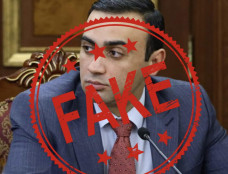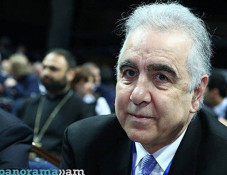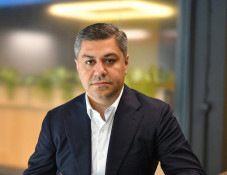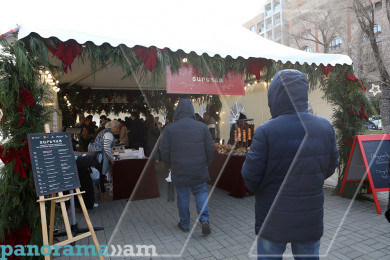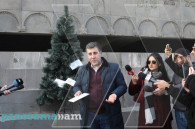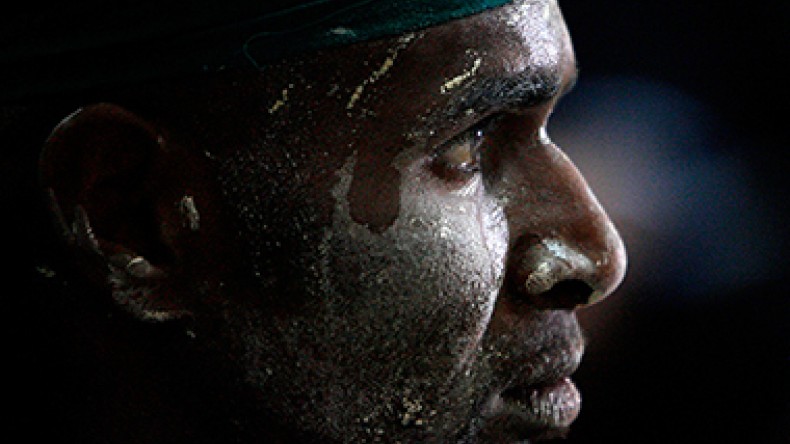
The secret country again wages war on its own people
By John Pilger, RT
Australia has again declared war on Indigenous people, reminiscent of the brutality that brought global condemnation on apartheid South Africa. Aboriginal people are to be driven from homelands where their communities have lived for thousands of years.
In Western Australia, where mining companies make billion dollar profits exploiting Aboriginal land, the state government says it can no longer afford to "support" the homelands.
Vulnerable populations, already denied the basic services most Australians take for granted, are on notice of dispossession without consultation, and eviction at gunpoint. Yet again, Aboriginal leaders have warned of "a new generation of displaced people" and "cultural genocide".
Genocide is a word Australians hate to hear. Genocide happens in other countries, not the "lucky" society that per capita is the second richest on earth. When "act of genocide" was used in the 1997 landmark report Bringing Them Home, which revealed that thousands of Indigenous children had been stolen from their communities by white institutions and systematically abused, a campaign of denial was launched by a far-right clique around the then prime minister John Howard. It included those who called themselves the Galatians Group, then Quadrant, then the Bennelong Society; the Murdoch press was their voice.
The Stolen Generation was exaggerated, they said, if it had happened at all. Colonial Australia was a benign place; there were no massacres. The First Australians were victims of their own cultural inferiority, or they were noble savages. Suitable euphemisms were deployed.
The government of the current prime minister, Tony Abbott, a conservative zealot, has revived this assault on a people who represent Australia's singular uniqueness. Soon after coming to office, Abbott's government cut $534 million in indigenous social programmes, including $160 million from the indigenous health budget and $13.4 million from indigenous legal aid.
In the 2014 report Overcoming Indigenous Disadvantage Key Indicators, the devastation is clear. The number of Aboriginal people hospitalised for self-harm has leapt, as have suicides among those as young as eleven. The indicators show a people impoverished, traumatised and abandoned. Read the classic expose of apartheid South Africa, The Discarded People by Cosmas Desmond, who told me he could write a similar account of Australia.
Having insulted indigenous Australians by declaring (at a G20 breakfast for David Cameron) that there was "nothing but bush" before the white man, Abbott announced that his government would no longer honour the longstanding commitment to Aboriginal homelands. He sneered, "It's not the job of the taxpayers to subsidise lifestyle choices."
The weapon used by Abbott and his redneck state and territorial counterparts is dispossession by abuse and propaganda, coercion and blackmail, such as his demand for a 99-year leasehold of Indigenous land in the Northern Territory in return for basic services: a land grab in all but name. The Minister for Indigenous Affairs, Nigel Scullion, refutes this, claiming "this is about communities and what communities want". In fact, there has been no real consultation, only the co-option of a few.
Both conservative and Labor governments have already withdrawn the national jobs programme, CDEP, from the homelands, ending opportunities for employment, and prohibited investment in infrastructure: housing, generators, and sanitation. The saving is peanuts.
The reason is an extreme doctrine that evokes the punitive campaigns of the early 20th century "chief protector of Aborigines", such as the fanatic A.O. Neville who decreed that the first Australians "assimilate" to extinction. Influenced by the same eugenics movement that inspired the Nazis, Queensland's "protection acts" were a model for South African apartheid. Today, the same dogma and racism are threaded through anthropology, politics, the bureaucracy and the media. "We are civilised, they are not," wrote the acclaimed Australian historian Russel Ward two generations ago. The spirit is unchanged.
Having reported on Aboriginal communities since the 1960s, I have watched a seasonal routine whereby the Australian elite interrupts its "normal" mistreatment and neglect of the people of the First Nations, and attacks them outright. This happens when an election approaches, or a prime minister's ratings are low. Kicking the blackfella is deemed popular, although grabbing minerals-rich land by stealth serves a more prosaic purpose. Driving people into the fringe slums of "economic hub towns" satisfies the social engineering urges of racists.
The last frontal attack was in 2007 when Prime Minister Howard sent the army into Aboriginal communities in the Northern Territory to "rescue children" who, said his minister for Aboriginal Affairs, Mal Brough, were being abused by paedophile gangs in "unthinkable numbers".
Known as "the intervention", the media played a vital role. In 2006, the national TV current affairs programme, the ABC's Lateline, broadcast a sensational interview with a man whose face was concealed. Described as a "youth worker" who had lived in the Aboriginal community of Mutitjulu, he made a series of lurid allegations. Subsequently exposed as a senior government official who reported directly to the minister, his claims were discredited by the Australian Crime Commission, the Northern Territory Police and a damning report by child medical specialists. The community received no apology.
The 2007 "intervention" allowed the federal government to destroy many of the vestiges of self-determination in the Northern Territory, the only part of Australia where Aboriginal people had won federally-legislated land rights. Here, they had administered their homelands in ways with the dignity of self-determination and connection to land and culture and, as Amnesty reported, a 40 per cent lower mortality rate.
It is this "traditional life" that is anathema to a parasitic white industry of civil servants, contractors, lawyers and consultants that controls and often profits from Aboriginal Australia, if indirectly through the corporate structures imposed on Indigenous organisations. The homelands are seen as a threat, for they express a communalism at odds with the neo-conservatism that rules Australia. It is as if the enduring existence of a people who have survived and resisted more than two colonial centuries of massacre and theft remains a spectre on white Australia: a reminder of whose land this really is.
The current political attack was launched in the richest state, Western Australia. Last October, the state premier, Colin Barnett, announced that his government could not afford the $90 million budget for basic municipal services to 282 homelands: water, power, sanitation, schools, road maintenance, rubbish collection. It was the equivalent of informing the white suburbs of Perth that their lawn sprinklers would no longer sprinkle and their toilets no longer flush; and they had to move; and if they refused, the police would evict them.
Where would the dispossessed go? Where would they live? In six years, Barnett's government has built few houses for Indigenous people in remote areas. In the Kimberley region, Indigenous homelessness - aside from natural disaster and civil strife - is one of the highest anywhere, in a state renowned for its conspicuous wealth, golf courses and prisons overflowing with impoverished black people. Western Australia jails Aboriginal males at more than eight times the rate of apartheid South Africa. It has one of the highest incarceration rates of juveniles in the world, almost all of them indigenous, including children kept in solitary confinement in adult prisons, with their mothers keeping vigil outside.
In 2013, the former prisons minister, Margaret Quirk, told me that the state was "racking and stacking" Aboriginal prisoners. When I asked what she meant, she said, "It's warehousing."
In March, Barnett changed his story. There was "emerging evidence", he said, "of appalling mistreatment of little kids" in the homelands. What evidence? Barnett claimed that gonorrhoea had been found in children younger than 14, then conceded he did not know if these were in the homelands. His police commissioner, Karl O'Callaghan, chimed in that child sexual abuse was "rife". He quoted a 15-year-old study by the Australian Institute of Family Studies. What he failed to say was that the report highlighted poverty as the overwhelming cause of "neglect" and that sexual abuse accounted for less than 10 per cent.
The Australian Institute of Health and Welfare, a federal agency, recently released a report on what it calls the "Fatal Burden" of Third World disease and trauma borne by Indigenous people "resulting in almost 100,000 years of life lost due to premature death". This "fatal burden" is the product of extreme poverty imposed in Western Australia, as in the rest of Australia, by the denial of human rights.
In Barnett's vast rich Western Australia, barely a fraction of mining, oil and gas revenue has benefited communities for which his government has a duty of care. In the town of Roeburne, in the midst of the booming minerals-rich Pilbara, 80 per cent of the indigenous children suffer from an ear infection called otitis media that causes deafness.
In 2011, the Barnett government displayed a brutality in the community of Oombulgurri the other homelands can expect. "First, the government closed the services," wrote Tammy Solonec of Amnesty International, "It closed the shop, so people could not buy food and essentials. It closed the clinic, so the sick and the elderly had to move, and the school, so families with children had to leave, or face having their children taken away from them. The police station was the last service to close, then eventually the electricity and water were turned off. Finally, the ten residents who resolutely stayed to the end were forcibly evicted [leaving behind] personal possessions. [Then] the bulldozers rolled into Oombulgurri. The WA government has literally dug a hole and in it buried the rubble of people's homes and personal belongings."
In South Australia, the state and federal governments launched a similar attack on the 60 remote Indigenous communities. South Australia has a long-established Aboriginal Lands Trust, so people were able to defend their rights - up to a point. On 12 April, the federal government offered $15 million over five years. That such a miserly sum is considered enough to fund proper services in the great expanse of the state's homelands is a measure of the value placed on Indigenous lives by white politicians who unhesitatingly spend $28 billion annually on armaments and the military. Haydn Bromley, chair of the Aboriginal Lands Trust told me, "The $15 million doesn't include most of the homelands, and it will only cover bare essentials - power, water. Community development? Infrastructure? Forget it."
The current distraction from these national dirty secrets is the approaching "celebrations" of the centenary of an Edwardian military disaster at Gallipoli in 1915 when 8,709 Australian and 2,779 New Zealand troops - the Anzacs - were sent to their death in a futile assault on a beach in Turkey. In recent years, governments in Canberra have promoted this imperial waste of life as an historical deity to mask the militarism that underpins Australia's role as America's "deputy sheriff" in the Pacific.
In bookshops, "Australian non-fiction" shelves are full of opportunistic tomes about wartime derring-do, heroes and jingoism. Suddenly, Aboriginal people who fought for the white man are fashionable, whereas those who fought against the white man in defence of their own country, Australia, are unfashionable. Indeed, they are officially non-people. The Australian War Memorial refuses to recognise their remarkable resistance to the British invasion. In a country littered with Anzac memorials, not one official memorial stands for the thousands of native Australians who fought and fell defending their homeland.
This is part of the "great Australian silence", as W.E.H. Stanner in 1968 called his lecture in which he described a "cult of forgetfulness on a national scale". He was referring to the Indigenous people. Today, the silence is ubiquitous. In Sydney, the Art Gallery of New South Wales currently has an exhibition, The Photograph and Australia, in which the timeline of this ancient country begins, incredibly, with Captain Cook.
The same silence covers another enduring, epic resistance. Extraordinary demonstrations of Indigenous women protesting the removal of their children and grandchildren by the state, some of them at gunpoint, are ignored by journalists and patronised by politicians. More Indigenous children are being wrenched from their homes and communities today than during the worst years of the Stolen Generation. A record 15,000 are presently detained "in care"; many are given to white families and will never return to their communities.
Last year, the West Australian Police Minister, Liza Harvey, attended a screening in Perth of my film, Utopia, which documented the racism and thuggery of police towards black Australians, and the multiple deaths of young Aboriginal men in custody. The minister cried.
On her watch, 50 City of Perth armed police raided an Indigenous homeless camp at Matagarup, and drove off mostly elderly women and young mothers with children. The people in the camp described themselves as "refugees ... seeking safety in our own country". They called for the help of the United Nations High Commissioner on Refugees.
Australian politicians are nervous of the United Nations. Abbott's response has been abuse. When Professor James Anaya, the UN Special Rapporteur on Indigenous People, described the racism of the "intervention", Abbott told him to, "get a life" and "not listen to the old victim brigade".
The planned closure of Indigenous homelands breaches Article 5 of the International Convention for the Elimination of Racial Discrimination (ICERD) and the Declaration on the Rights of Indigenous People (UNDRIP). Australia is committed to "provide effective mechanisms for prevention of, and redress for ... any action which has the aim of dispossessing [Indigenous people] of their lands, territories or resources". The Covenant on Economic, Social and Cultural Rights is blunt. "Forced evictions" are against the law.
An international momentum is building. In 2013, Pope Francis urged the world to act against racism and on behalf of "indigenous people who are increasingly isolated and abandoned". It was South Africa's defiance of such a basic principle of human rights that ignited the international opprobrium and campaign that brought down apartheid. Australia beware.
Newsfeed
Videos










